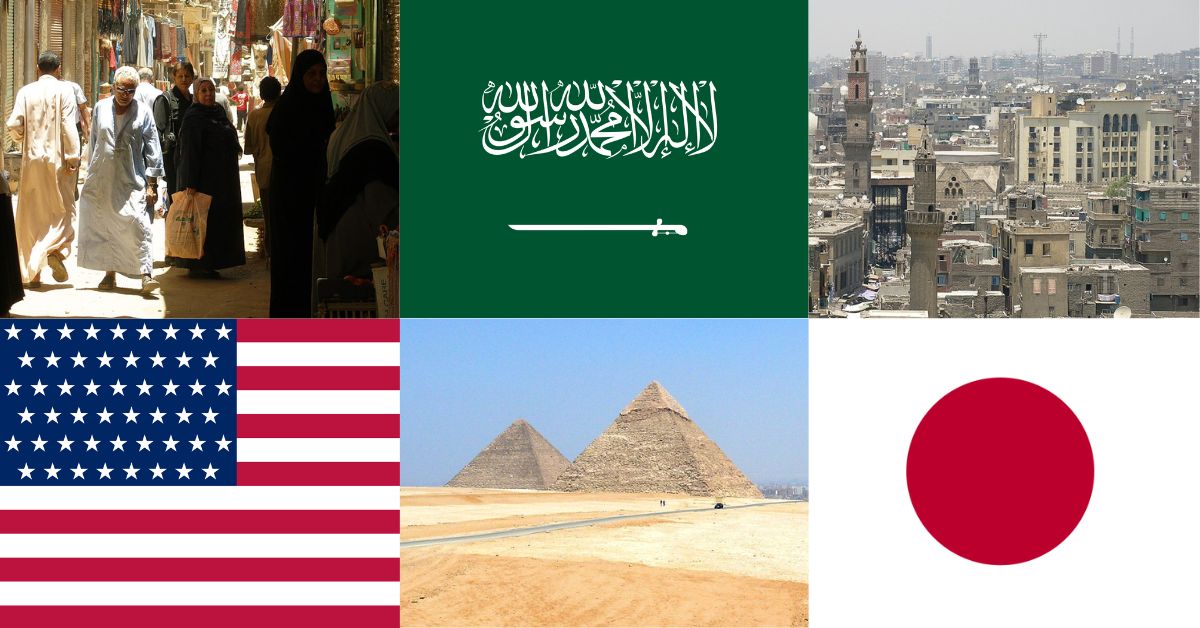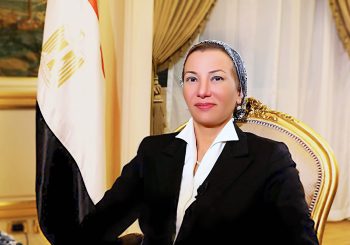With the rise of globalization, the increasing popularity of foreign language programs, and more opportunities to participate in international study abroad, education has far surpassed merely attending lectures and studying reference materials.
“There’s only so much you can get out of a book,” Mary Quinlan tells Egyptian Streets.
Quinlan is a student of the Arabic Studies MA with a concentration in Arabic Language and Literature at the American University in Cairo (AUC). She has made the trans-atlantic journey from New York to study Arabic in Egypt.
That being said, not all students choose Egypt only to study its national language.
“I made a very good friend from Iran. He taught me about Arab culture, and that’s why I was interested in Middle Eastern countries,” says Yuko Iriguchi, a student from Japan.
For Sara Alansari from Saudi Arabia, the move was dictated by family circumstances: “[My dad] got a promotion in Egypt, so all of us, as a family, moved here.”
Unlike Quinlan, Iriguchi and Alansari are undergraduate seniors majoring in Business. While Alansari studied at the German University in Cairo (GUC) concentrating in Strategic Management and Marketing, Iriguchi participated in one of AUC’s international partner programs.
Despite their different backgrounds and motivations, each of these international students say that they each enjoyed their educational experiences in Egypt.
Inspiration and Anticipation
Quinlan explains that her decision to study in Egypt was influenced by one of her professors in the United States, but it was the location itself that ultimately convinced her.
“Of course, I wanted to study in an [Arabic-speaking] country to better immerse myself […] I wanted to be able to talk to people who had grown up and lived with the Arabic language,” she says, then adds with a chuckle, “Also, it’s just more cool.”
Quinlan notes that there were similar programs in the US she could have applied for, but that she wanted a more authentic experience in her studies.
Iriguchi, on the other hand, was drawn to Egypt almost by chance. After growing fascinated with the culture of her Iranian friend, she researched study abroad opportunities in the Middle East and found AUC was the only available program.
Even so, she was just as excited to travel to Cairo since she was unfamiliar with the region in general.
“I didn’t know Egypt at all, I thought it was totally different from Japan — a totally different culture,” Iriguchi says.
“It was a big change,” Alansari agrees, recalling the cultural differences she anticipated from Saudi Arabia to Egypt, “but I was excited because I was going from an all-girls school to something that was quite different.”
Alansari had been used to an Arabic education overseas, so in her case, the transition was going to be more than just geographical.
Although their studies and motivations to visit differ, these internationals approached their study abroad experiences with optimism.
The Educational Experience
Needless to say, the location that a student studies definitely impacts their educational experience.
“The system here is quite different,” Alansari confirms. “In Saudi Arabia, it’s more that they expect you to memorize everything. […] And it was more individualistic.”
Alansari notes that her university courses required a lot more studying and cooperation. Group work was not a staple of her educational experience before, but she completed several group projects at GUC.
“The education is very different,” Iriguchi agrees.
“When I studied in AUC, I realized students often discuss a lot and teachers ask the students’ opinions a lot, but in Japan, teachers mostly teach and talk.”
Despite the different teaching styles, Iriguchi says she really enjoyed being able to hear her peers’ thoughts and opinions in the classroom.
Quinlan also gained much in terms of her education in Egypt — especially outside the classroom.
“When you just talk to people regularly about regular life, that’s when you learn a lot,” Quinlan shares. “That’s the fun part of studying abroad: meeting new people, doing new things, seeing new stuff.”
Studying Arabic in a country where it is the main language and living in an area like downtown Cairo made her feel like she got the full Egyptian experience, Quinian explains.
Embracing a Foreign Space
Of course, a different educational experience is not the only benefit of studying in a foreign country.
International students are often encouraged to explore Egypt and engage with its culture. For Quinlan, this meant joining the university’s folklore troupe after seeing them perform during orientation.
While it was initially just a way to make friends and learn about Egyptian music, the troupe eventually came to mean much more to her.
“I think it’s one of the best things I’ve done here,” Quinlan says. “It’s helped me practice my dialect […] It’s also just fun to dance, listen to music, and wear the outfits.”
She goes on to say that the kindness of both the girls she worked with and their instructors made the overall experience very enjoyable.
Alansari recalls similar experiences with the Egyptians she met, saying, “I’ve met a lot of nice people, and I’ve grown quite attached. […] A lot of people are welcoming here, they’re very nice.”
Iriguchi, on her part, decided to join AUC’s Language and Intercultural Club, also known as the Language Café.
The Language Café is a group for native speakers to share their language with others who are interested in learning them. It was both an opportunity for Iriguchi to experience other cultures as well as to share her own alongside her studies.
“I taught Japanese, and Egyptians taught me Egyptian Arabic,” she explains.
Besides her club activities, Iriguchi also became more familiar with Egypt through travel.
“I went to Dahab, Hurghada — everything. I realized there is a lot of beautiful nature, and there are many places to visit in Egypt. I really enjoyed it.”
She, too, mentions the kindness of the people that she met and how interesting the cultures in different parts of Egypt were. In particular, she recalls a favorite moment during which she visited a friend near Mansoura and saw a very different way of life than in the capital city.
“It’s super local. I saw how living there was different from Cairo and New Cairo,” Iriguchi recalls. “They make everything themselves […] and they cooked me mahshi (stuffed vegetables) and macarona bechamel (Egyptian baked pasta). It was a very good experience for me.”
Recommending Egypt
Quinlan, Alansari, and Iriguchi all enjoyed their stays in Egypt — and each recommend other students try programs in the country as well. For those who do, they shared a few tips.
“Please explore Egypt a lot because there are so many places you can visit,” Iriguchi advises, noting that even after all her travels there is still more she wants to see. “One year is not enough.”
“Absorb your surroundings,” Alansari adds. “There’s a lot in this country you can get to explore. [Egypt] has a sense of history and heart.”
Outside of traveling, Alansari particularly encourages students to join clubs in university and to take the step to interact with different people.
On a similar note, Quinlan recommends living in less suburban areas to get the most out of the experience.
“Try and live in a place downtown; it’s more immersive, especially for American students,” she recommends. “You’ll be more exposed to Egyptian culture, and you’ll be kind of forced to put yourself out there and go to different places.”
Like Alansari, Quinlan emphasizes the value of speaking to as many people as possible, both to improve Arabic skills and to get a better feeling for the locals.
“You should talk to a lot of Egyptians,” Iriguchi agrees. “They are very funny, and you can learn many things from them.”
All in all, Egypt offers more to students than just the typical educational experience; and all three of these international students can attest to the value of their experiences studying away from home, despite their origins at opposite ends of the world.
Subscribe to the Egyptian Streets’ weekly newsletter! Catch up on the latest news, arts & culture headlines, exclusive features and more stories that matter, delivered straight to your inbox by clicking here.






Comment (1)
[…] post Perspectives from East and West: Experiencing Egypt as an International Student first appeared on Egyptian […]